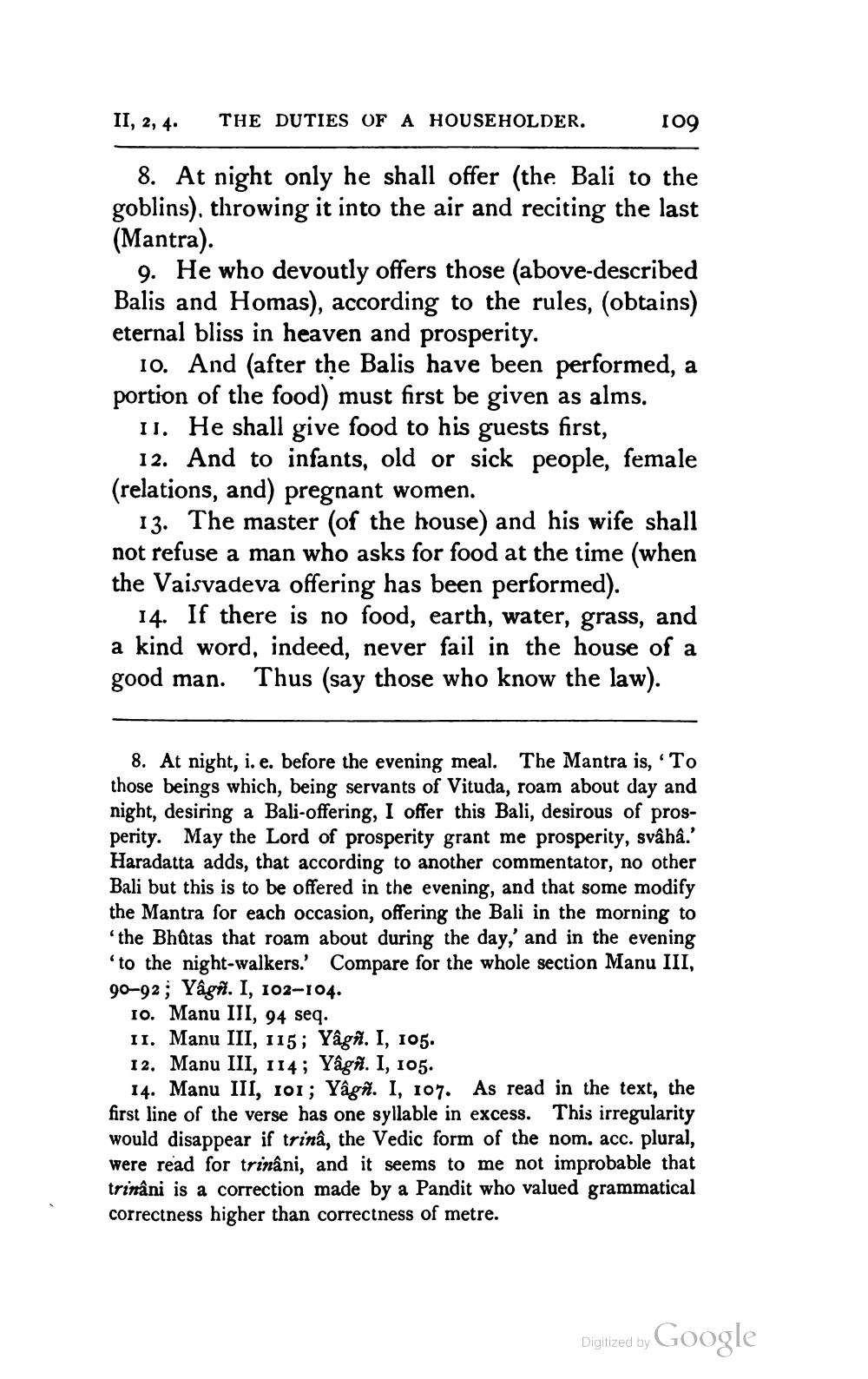________________
II, 2, 4.
THE DUTIES OF A HOUSEHOLDER.
109
8. At night only he shall offer (the Bali to the goblins), throwing it into the air and reciting the last (Mantra).
9. He who devoutly offers those (above-described Balis and Homas), according to the rules, (obtains) eternal bliss in heaven and prosperity.
10. And (after the Balis have been performed, a portion of the food) must first be given as alms.
II. He shall give food to his guests first,
12. And to infants, old or sick people, female (relations, and) pregnant women.
13. The master (of the house) and his wife shall not refuse a man who asks for food at the time (when the Vaisvadeva offering has been performed).
14. If there is no food, earth, water, grass, and a kind word, indeed, never fail in the house of a good man. Thus (say those who know the law).
8. At night, i. e. before the evening meal. The Mantra is, 'To those beings which, being servants of Vituda, roam about day and night, desiring a Bali-offering, I offer this Bali, desirous of prosperity. May the Lord of prosperity grant me prosperity, svâhâ.' Haradatta adds, that according to another commentator, no other Bali but this is to be offered in the evening, and that some modify the Mantra for each occasion, offering the Bali in the morning to 'the Bhutas that roam about during the day,' and in the evening 'to the night-walkers.' Compare for the whole section Manu III, 90-92; Yâgn. I, 102-104.
10. Manu III, 94 seq.
II. Manu III, 115; Yâgй. I, 105.
12. Manu III, 114; Yâgn. I, 105.
14. Manu III, 101; Yâgn. I, 107. As read in the text, the first line of the verse has one syllable in excess. This irregularity would disappear if trinâ, the Vedic form of the nom. acc. plural, were read for trinâni, and it seems to me not improbable that trinâni is a correction made by a Pandit who valued grammatical correctness higher than correctness of metre.
Digitized by
Google




